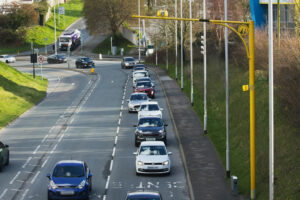The transport and land use think tank, the Independent Transport Commission, has released a book calling for new assessment appraisal for transport policy and investment decisions, shifting from ‘predict and provide’ to ‘vision and validate’, based on notion that travel is not simply about derived demand but is useful in itself.
Why Travel? Understanding our Need to Move and How it Shapes our Lives, published by Bristol University Press has contributions from leading global experts who provide insights from across the sciences, arts and humanities about our motivations for wanting to travel. This analysis comes at a critical time as we emerge and recover from the COVID-19 pandemic.
With a foreword by Tony Wheeler, co-founder of Lonely Planet, the chapter contributors examine the importance of travel for our wellbeing and how it fits with reducing our carbon footprint, adapting to new mobility technologies and improving the quality of our journeys, amongst much else.
The book reveals how our travel choices are rooted in evolutionary biology, social and psychological development and shaped by a wide range of social, physical, psychological and cultural factors including global movements due to war and climate change. But travel has its darker side too and the book raises the consequences of travel such as migration, slavery and the undermining of local cultures.
It concludes that we need a shift from ‘predict and provide’ to ‘vision and validate’. This is especially important as UK governments, sub-national transport bodies and transport operators consider future demand and public policy choices to encourage people back on to mass transit systems and the wider transport network, alongside associated investment decisions.
“This book challenges head-on the notion that transport is just about getting from A to B as fast as possible. Our findings take to task the conventional transport economics’ view that travel is merely a ‘derived demand’, always based on some other activity, and the assumption that policymakers must always focus on reducing travel time, since it is of no inherent value. Appraisal methods should evaluate and take into account the quality of our journeys and value travel time more positively”, said Dr Matthew Niblett, Director of the ITC.
Other high-profile commentators have also supported the book:
“A must-read for transport professionals and anyone interested in travel. Trains, planes, bikes are agents of social change and self-realisation, not just means of getting from A to B. This book tells that story,” said Lord Adonis, former UK Secretary of State for Transport.
“This book is required reading for all of us in transport, and the much wider number of people curious about human behaviour and its consequences. Much in it is new, and all of it is fascinating!”, added Sir Peter Hendy CBE, Chair of Network Rail.
(Picture – Bristol University Press)
























